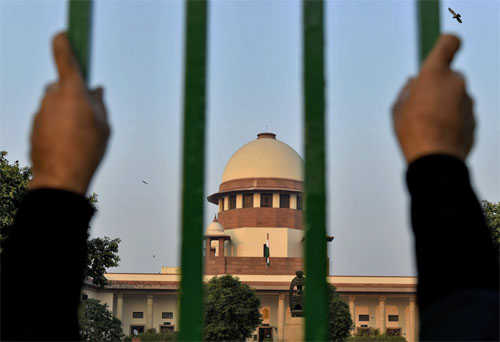
THE unprecedented press conference by top four judges of the Supreme Court and the allegations levelled by them against Chief Justice of India Dipak Misra have brought to the fore the much talked-about chinks in the top judiciary over a range of issues, including the manner in which the CJI allocated cases to his brother judges in his capacity as “master of the roster”. Justice Chelameswar chose to describe the press conference as “an extraordinary event” in the history of the nation and the judiciary; he and his three senior colleagues felt compelled enough to go public as they failed to convince the CJI about the measure to check the “less than desirable” things that had happened in the past few months. The four judges argued Justice Misra had gone against the well-settled and time-honoured conventions guiding the CJI in deciding the roster and allocation of cases to brother judges.Despite taking the extraordinary step, the four judges, to their credit, were restrained, though they conceded that damage had already been done to the judiciary’s image “to some extent”. The issue of CJI’s authority to decide the roster had been in the news since November last when a two-judge Bench headed by Justice Chelameswar referred a petition alleging bribing of judges to procure favourable orders in medical college admissions to a Constitution Bench of the top five judges. Within a day, another Constitution Bench headed by CJI Misra effectively overturned it, asserting that the CJI was the “master of the roster”. They had a similar bone to pick with the CJI over how the memorandum of procedure for the appointment of judges was dealt by a two-judge of a three-judge Bench when it was decided by a Constitution Bench of five judges.Democracy functions through institutions and the judiciary is an important pillar of our constitutional democracy, enjoying people’s confidence. But the manner in which things have unfolded in the past one year in the Supreme Court have undermined the citizen’s confidence. If the seniormost judges in the collegium could not sort out their differences on certain issues, they could perhaps have called a Full Court of all the judges to evolve an institutional mechanism to deal with such situations. Washing dirty linen in public may not help much. The jury is still out.
